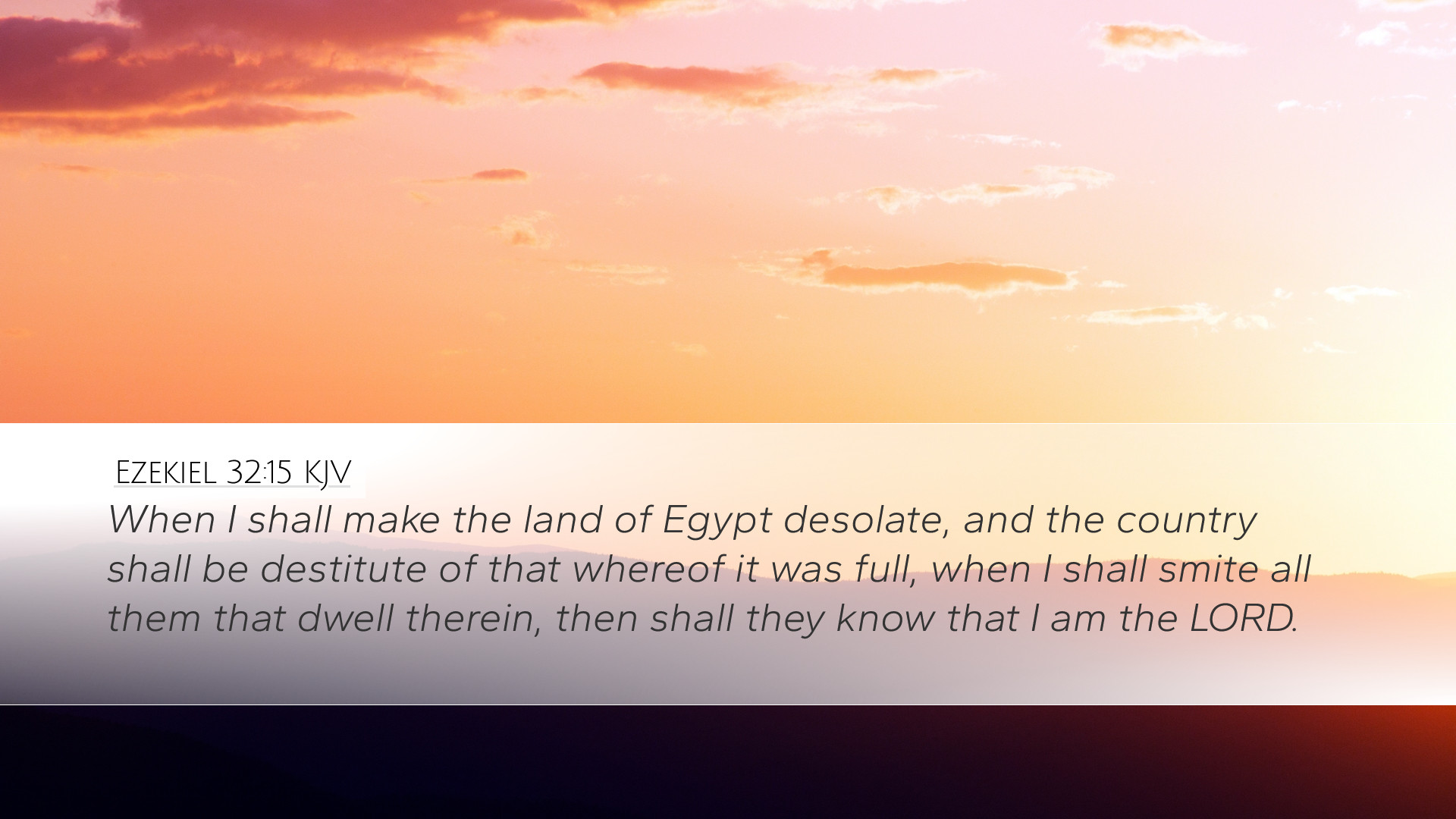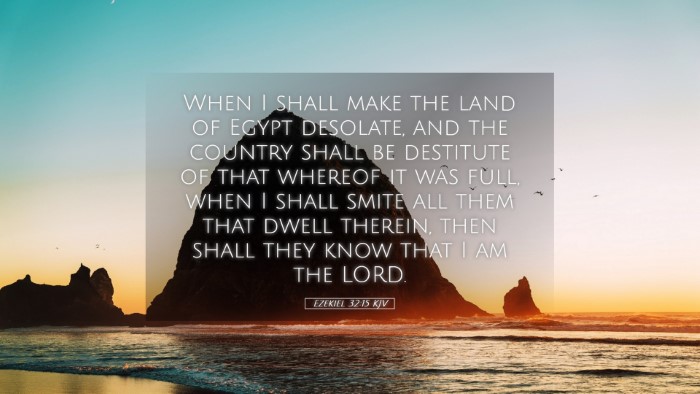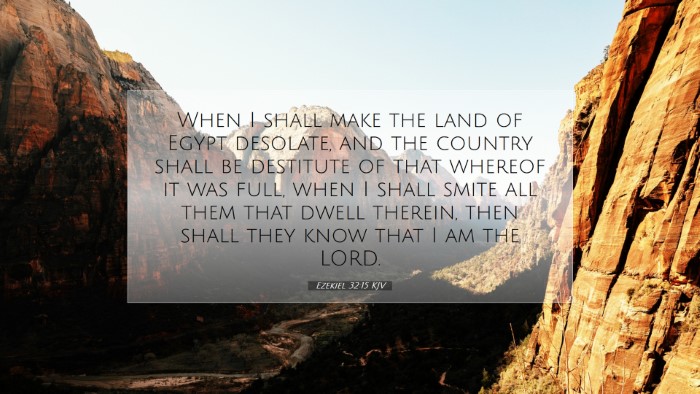Bible Commentary on Ezekiel 32:15
Ezekiel 32:15 (NIV): "When I make the land of Egypt desolate and the land of Egypt is stripped of all that it has, and when I strike down all who live there, then they will know that I am the LORD."
Introduction
The prophetic utterance found in Ezekiel 32:15 serves as a stark reminder of God’s sovereignty over nations and His judgment upon those who oppose His will. By drawing on insights from esteemed public domain commentaries, this analysis seeks to extract profound theological reflections and historical contexts relevant to pastors, students, theologians, and Bible scholars.
Contextual Background
Ezekiel’s prophecies were delivered during a tumultuous period for Israel. The nation had faced the devastation of Babylonian conquest, and with Egypt being portrayed as a rival power, God's judgment reflects His authority over all worldly empires.
- Historical Setting: Ezekiel prophesied during the Babylonian exile, a time when hope for restoration seemed distant for the Israelites.
- Geopolitical Dynamics: Egypt was viewed as a formidable ally by Israel, but its eventual downfall signifies God's control over all nations.
- Theological Significance: The judgment on Egypt illustrates God's divine justice and the consequences of idolatry and rebellion against Him.
Commentary Insights
Matthew Henry’s Commentary
Henry emphasizes that Egypt's desolation stands as a testament to God's mighty hand in history. He notes how this judgment not only served to punish Egypt but also acted as a warning to Israel about their own reliance on foreign nations for support and security.
He points out that God strips Egypt of its pride and oppressors, illustrating the futility of human strength against divine judgment. This stark reminder serves to teach the Israelites about the dangers of placing their trust in worldly powers, which ultimately lead to destruction.
Albert Barnes’ Notes on the Bible
Barnes provides a detailed examination of the verse, highlighting the phrase "they will know that I am the LORD." He asserts that God's purpose behind His judgments is to reveal His character and authority. The desolation of the Egyptian land was meant to awaken Israel to the reality of God’s supremacy.
He further explains that God's destruction of Egypt signifies a broader theological truth: nations that rise against the Lord will face inevitable judgment. Barnes urges readers to reflect on the implications of this divine pronouncement, especially in their own national and personal contexts.
Adam Clarke’s Commentary
Clarke’s exposition draws attention to the moral and spiritual implications of Egypt’s downfall. He links their eventual desolation to their long-standing idolatry and oppression of Israel. Clarke underscores that God's actions in history serve a dual purpose: judgment and revelation of His holiness.
Clarke also interprets the "land stripped of all that it has" as a metaphor for the emptiness that accompanies rebellion against God. Here, Clarke invites scholars and theologians to ponder the existential void that occurs when nations turn away from divine truths.
Theological Reflections
This passage invites readers to consider multiple dimensions of God’s character, particularly His justice and sovereignty. It serves as a reflective call for both individuals and communities to realign themselves with divine principles.
- God's Sovereignty: This verse reinforces the idea that God rules over all the earth, and no nation is beyond His reach.
- Awareness of Divine Judgment: There is an urgent need for awareness among nations regarding their moral standings and accountability before God.
- The Role of Remembrance: God’s judgments often act as reminders for His people to return to Him, emphasizing the importance of recognizing past lessons in current circumstances.
Practical Applications
For pastoral leaders and scholars alike, Ezekiel 32:15 challenges one to consider its implications for today's context.
- Encouraging Dependence on God: Pastors are called to emphasize the importance of placing trust solely in God, rather than in human institutions.
- Proclaiming the Sovereignty of God: The theological truth that God reigns should be at the forefront of preaching and teaching.
- Understanding Cultural Contexts: Scholars and theologians should examine how contemporary nations mirror the pitfalls seen in Egypt, ultimately applying scriptural principles to modern-day governance and societal structures.
Conclusion
Ezekiel 32:15 offers profound insights into the nature of God’s character, asserting His sovereignty while illustrating the consequences of national pride and idolatry. By merging insights from Matthew Henry, Albert Barnes, and Adam Clarke, this commentary serves as a rich resource for spiritual leaders and theologians.
Ultimately, the call to recognize the Lord in both judgment and mercy is an enduring theme that resonates across centuries, echoing the divine truths found within Scripture.


